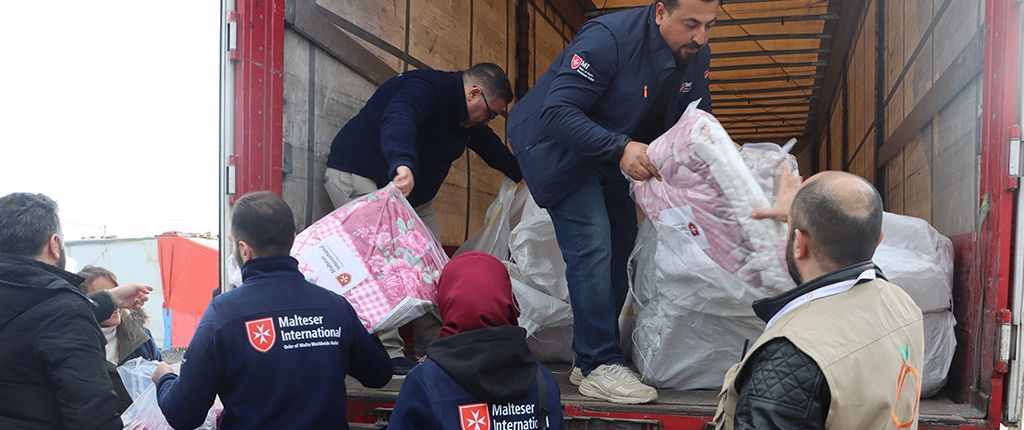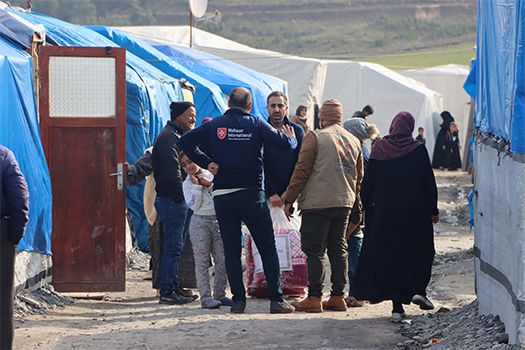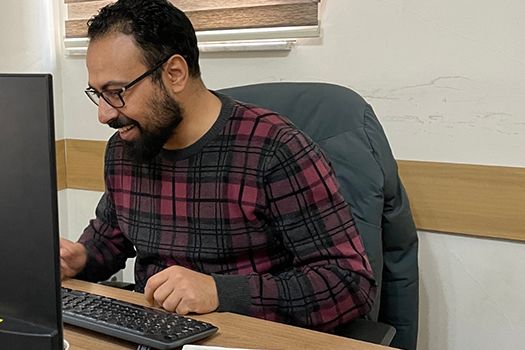
Strengthening local partnerships - our partner "Orange"
The localization of humanitarian relief means strengthening and cooperating with local partners and is a key measure for us towards even more efficient and effective support. After all, local people know best what kind of help is needed in a crisis. The local organizations know the context and the needs of the community from their own experience, which increases the acceptance of the activities and encourages the people affected to help each other and develop their own solutions. Not only that: in most cases, they also have better access to the local community. This is particularly important for those community groups that have little participation in society and are therefore often particularly affected by crisis situations.
Our partner organisation Orange

After the severe earthquakes in Türkiye in 2023, the situation there has worsened, primarily for the weakest members of society. Particularly Syrian refugees who had found protection in Türkiye have once again lost everything and have to start all over again.
In this context, we are currently working with two Syrian partner organizations based in Türkiye that support people both in their home country and in Türkiye. One of them is the organization "Orange", which is based in the Turkish city of Gaziantep. In March 2024, we launched our first joint project to help small entrepreneurs who lost everything in the earthquake rebuild their businesses.
In conversation with the programme director Feras Hossein

In his office in Gaziantep, we spoke to programme director Feras Hossein about the organization's work.
How does the organization "Orange" work?
We work in two countries: Syria and Türkiye. Before the earthquakes, our work was primarily focused on Syria. After the disaster, however, we expanded our program in Türkiye because it was clear to us that the people in Türkiye needed massive support given the enormous destruction. Initially, we immediately provided emergency humanitarian relief. But after the first phase, we have now started to provide people with sustainable support and make them economically independent of help again.
What exactly does sustainable support look like now?
Even more than a year after the severe earthquakes, more than three million people are still living in containers or tents in Türkiye alone. It is important that they find a way to become independent of external support. They have to find a way back to their old lives now. They also have to regain hope. But this will only succeed if they become economically independent. The people who were self-employed before the earthquake and lost not only their homes but also their small businesses as a result of the massive destruction are now receiving money to rebuild their businesses. In addition to financial support, they receive training in order to become competitive. This gives them the opportunity to earn their own income again. This way, we show them how they can get out of the camp they are still living in and become independent of the support they were previously dependent on.
How would you describe your organization?
We have a highly diverse team: we employ Turks, people from Europe and Latin America as well as refugees from Syria. For our work, the latter means that we have employees who speak Arabic, for example, and who can communicate with the Syrian refugees here in Türkiye and understand their cultural background. I, too, was born in Aleppo, studied environmental engineering there and fled from Aleppo to the Idlib region at the beginning of the political crisis. I started working for relief organizations there because I felt it was the best way for me to help the people from my home country. And that is what still drives me today: To help people who need my support. Regardless of their religion, nationality or political views.
(Feras Hossein has since changed organisation.)








